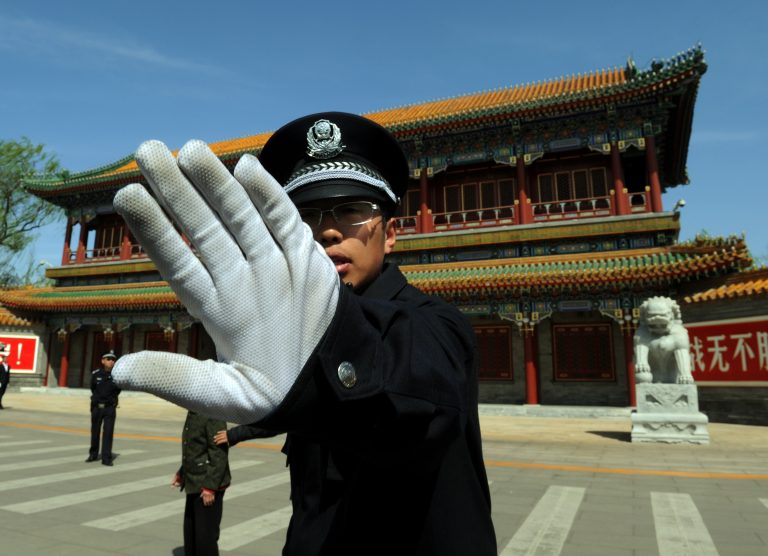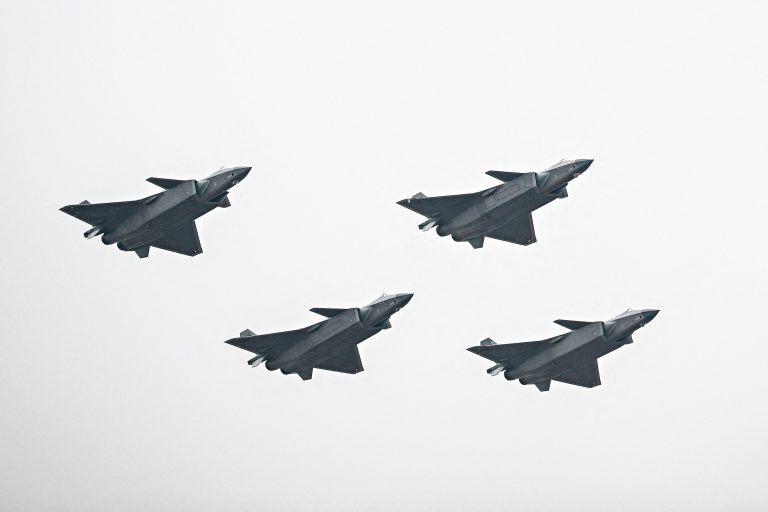On March 7, hundreds of residents in China’s eastern province of Shandong took to the streets to protest against recent medical care reforms made by the government. The protests began on the fourth day of the Chinese government annual “Two Sessions” meetings in the port city of Qingdao, where demonstrators gathered outside government buildings to voice their opposition to the changes.
The new health insurance guidelines — which were announced by the government in mid-February, and have been gradually introduced since 2021 — aim to reduce costs by limiting the number of medical procedures that will be covered by government-issued insurance. This has led to concerns among netizens that the regime authorities will soon be unable to afford necessary medical attention — forcing citizens to pay out of pocket for life-saving medicine and treatments.
MORE ON PROTESTS AND SOCIAL ISSUES IN CHINA:
- Chinese Official Suggests Pro-Natalist Education for Elementary and Middle School Students as Birth Rate Dwindles
- Impact of China’s Demographic Collapse Revealed in Official Numbers
- Students in China’s Zhengzhou Protest ‘Zero-COVID’ Policy: ‘End the Lockdowns’
- With Both Small and Large Banks in Trouble, Will China’s Debt Crisis Blow Up?
The rising cost of healthcare
During the protests, people could be seen holding up signs and chanting slogans calling for the government to reconsider the reforms; many people — especially senior citizens — were heard expressing frustration with the rising cost of healthcare in China, which they say is already too expensive for many people to afford.
Footage recorded by nearby netizens also showed police officers ordering the crowds to disperse as tensions intensified, and some could be seen yelling and threatening physical violence should people choose not to listen to authorities.
The protests in Qingdao are just the latest in a series of demonstrations that have taken place across the country in recent months. Angered by the new healthcare changes, and compounded by other issues such as rising costs of living, lack of employment, and a faltering national economy, the protests appeared to reach a boiling point.
Success
You are now signed up for our newsletter
Success
Check your email to complete sign up
In response, the Chinese Communist Party (CCP) urged people to “remain calm and to trust in the reforms.” Officials also promised to work with healthcare providers to ensure that people continue to receive the medical care they need.
“Civil servants and public institution staff are still entitled to subsidized medical assistance insurance on top of the employee health insurance scheme,” political-risk consultancy firm SinoInsider said in a note.
Despite the government’s assurances, however, many people remain skeptical about the reforms and are calling for further action; with some even considering taking legal action to challenge the changes.
Netizens react
The protests in Qingdao trail behind those seen in Dalian, Wuhan, and Anshan — where droves of senior citizens launched a “White Hair Revolution” to highlight how the government’s policies have impacted their daily lives.
On March 7, a Twitter account named “Nobita’s Smile” published a video that brought attention to the Qingdao protests. “They [elderly citizens] gathered at the May Fourth Square, chanting slogans in opposition to the recent reforms — following in the footsteps of similar protests in Wuhan and Dalian,” the post read, adding “The government of Qingdao dispatched a large police force to maintain order, resulting in intense clashes between the demonstrators and the authorities.”
Numerous other online users commented that the struggles faced by elderly citizens in China are likely to “become our own in the future.” One user noted the CCP’s recent tactics to “reduce medical insurance, lay off workers, and increase restrictions on teachers, are stirring up widespread discontent.”
Another user, going by the handle “The Lowly Masses,” expressed disbelief that decisions affecting the life and death of seniors were being made without the consent of the general public, asserting that it was unacceptable. The netizen further suggested that the “government’s relaxed approach during the pandemic was merely an attempt to let natural disasters wipe out the most vulnerable members of society while leaving the rest to their fate.”
Other netizens also criticized the police force for their alleged lack of empathy towards the protesters, questioning whether they were indifferent to the fact that they, too, had parents or elderly neighbors.
One user even concluded his post by calling the authorities “dog minions” who behaved like machines — devoid of any sense of humanity.
A growing concern
According to Wang Jian — an economic commentator based in the U.S. who closely monitors healthcare reforms in China — the reduction of medical insurance personal accounts has negatively affected the welfare of the majority of retired employees. This is because these individuals typically rely on the funds in their personal accounts to cover medical expenses, Wang said.
“On the other hand, the pooling fund can only be utilized for hospitalization or severe illnesses, which is not a viable solution for those who require more regular medical attention,” Wang told media outlet Radio Free Asia (RFA).
As an example, Wang cited Wuhan, where the monthly medical stipend for members was previously set at 260 yuan (about US$38), but has now been reduced to 83 yuan (about US$12). “For many retired individuals with pre-existing medical conditions, a monthly expenditure of 260 yuan on healthcare and medication was already a considerable burden, but with the reduced personal account, the situation has become even more difficult, or nearly impossible,” Wang said.
These individuals will have no choice but to pay for medical treatment and prescriptions out of their own retirement income, Wang said, adding, “The CCP’s propaganda is designed to make you give up your immediate interests and give you a false sense of security.”
“It’s a very typical propaganda tactic,” he said.















